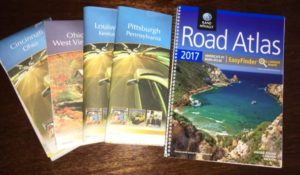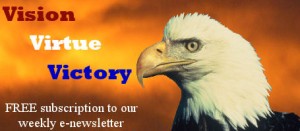
Technology has undoubtedly improved our lives and made us all more efficient. This is most especially true with regards to navigation. With the mere touch of a button, we can find our way through the labyrinths of modern cities. If we so desire, we are able to make unplanned stops–for whatever strikes our fancy–off the original route without the worry of remembering the way back to our original path.
The frequency with which we do this is but one example of the frenetic intemperance that has become a part of every human activity. Let’s face it pulling out a map or, even worse, asking for directions, takes time. I asked myself, what would happen if, for just one journey, I were to put the Global Positioning System (GPS) aside and use a map? I found out on a recent road trip to Louisville, Kentucky. Before leaving, I purchased an atlas, got some free maps of the cities I would be visiting from a local AAA store and began a memorable journey.
The first advantage of using what now seems an archaic navigational method is the basic awareness of where we actually are when we arrive at our destination. Whereas the GPS will get you there, we are often left oblivious as to where “there” is. The Global Positioning System might know our whereabouts, but without it, we can be clueless as to the position we occupy on the globe. When using a map, we naturally form a mental image that not only provides the sense of security that we can find our way without mechanical help, but the experience is engraved on the mind so that we are in better conditions to return to that same location at will. Thus, it has this added benefit of developing our memory.
Many books have been written about how our technological devices harm the memory. The brain is a malleable organ and, as the saying goes, if you don’t use it, you lose it. There is actually a particular part of our brain that deals with our perception of space and direction. It is called spatial memory, and is responsible for recording information about our surroundings. This type of memory, found in the right part of the brain, is crucial for our overall memory. Map reading forces us to use our spatial memory, thus strengthening our mental capacity.
 However, what I liked the most about travelling by map was how I got to go from the practical to the metaphysical. Using maps allowed me to actually see and interact with the world.
However, what I liked the most about travelling by map was how I got to go from the practical to the metaphysical. Using maps allowed me to actually see and interact with the world.
Reliance upon GPS leads us to constantly check our location to see if we are on the right track to the point that we often miss the obvious. How many times do we miss a road or highway that is clearly marked with big green signs–or slam into a car stopped at a red light–because all our attention is focused on a machine? Turning the machine off, not only allows us to better see clearly marked roads, but the world around us comes into better focus as well. With a mental image of our location, we are freer to see and analyze the world without having half our brain being monopolized by a digital device.
[like url=https://www.facebook.com/ReturnToOrder.org]
Lastly, there is the calmness that comes from planning a journey rather than the hurried “plug and play” trip done behind the wheel as the car is pulling away from the drive. Part of this tranquility comes from the slower pace of the map reader and the willingness to ask for help if necessary. While this might seem like a waste of time for the GPS user, interactions with human beings can be interesting. After all, they are rational beings with immortal souls, and one never knows what might come from such chance encounters. During my trip to Louisville I had many.
Before leaving the city, for example, I asked a couple for the best way to get back on the highway. I knew perfectly well where I was and with a quick map reference could have easily found one of the ways out. However, I wanted to take advantage of the opportunity to exchange a few words with some locals. Their Southern drawl was delightful and the contradictory opinions as to the best route were humorous. When neither husband nor wife could agree the daughter jumped in with her two cents. Their sincere desire to help, even when it took time from their day, was touching. It was not the impersonalized information dished out by a computerized voice, but rather a personal human-to-human contact that was refreshing. Taking their advice I was more easily able to find my way and the rest of the trip was a piece of cake.
Using a map truly does allow us to be calm and secure since we know where we actually are at any given time. It also forces us to adapt a calmer pace that we so seldom experience in our intemperate world. The most satisfying aspect of using a map is the satisfaction of silencing the machine and interacting with humans. In this sense, the map can take us to places and situations that no GPS can.



